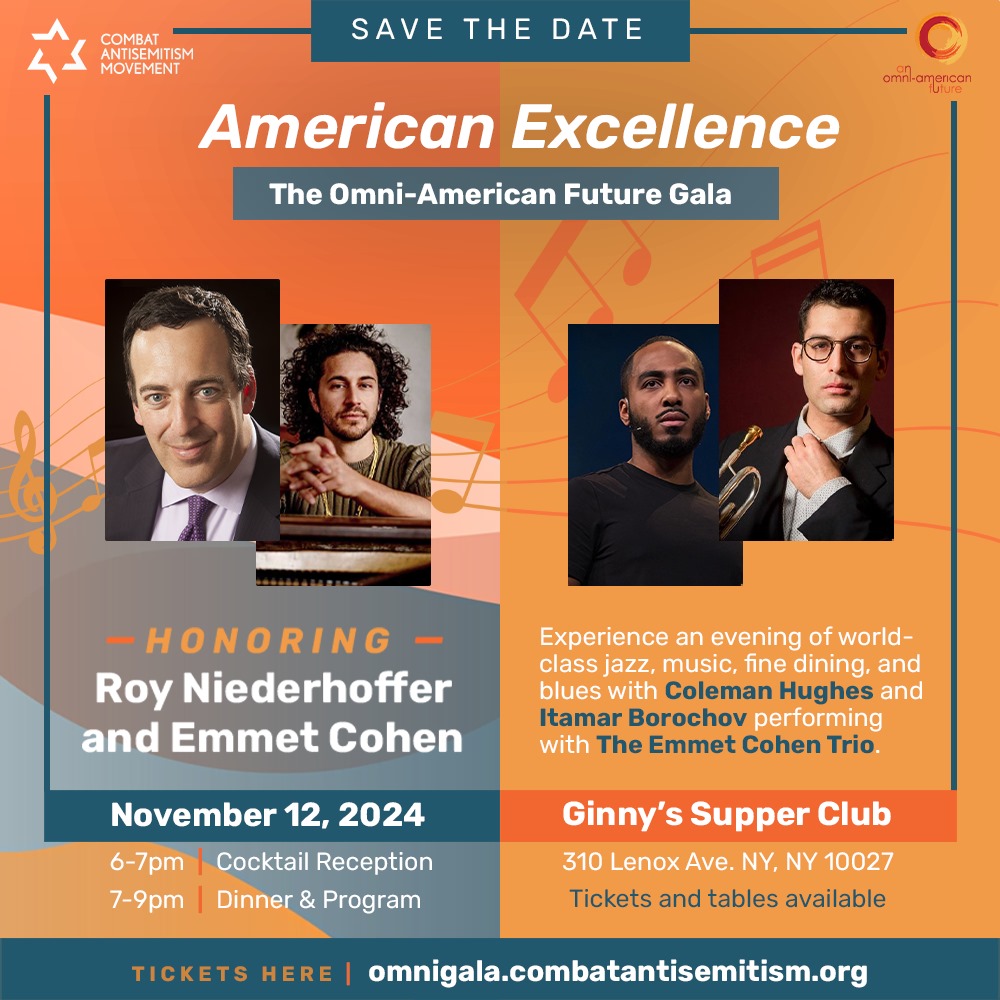A Sephardi Sukkot Story: R’Uziel & Etrogim
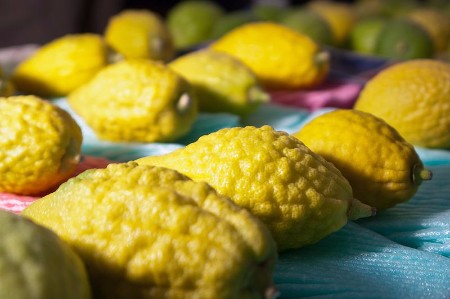
!חג שמח
From your friends at
The American Sephardi Federation
In honor of Sukkot, the ASF’s Sephardi World Weekly is pleased to present the following “Letter from the Land of Israel”:
The Chief Rabbi of Salonika and first Sephardi Chief Rabbi of Israel, Rabbi Ben-Zion Meir Hai Uziel (1880-1953), was an outstanding scholar, thinker, and leader, whose life was animated by a deep love of the Jewish tradition and the Jewish People. R’Uziel’s capacity to live simultaneously in the ethereal world of ideas and the practical reality of Jewish life in the land of Israel exemplifies the best of classic Sephardi Judaism. His combination of scholarship and public service was wonderfully illustrated by a seemingly arcane legal ruling that R’Uziel made in 1935 regarding the status of “grafted etrogim.”
What is an etrog? An etrog (known in English as a citron) is a citrus fruit, one of “the four species” of the land of Israel that Jews traditionally take to the synagogue during the week of Sukkot.
Jewish legal scholars have contended with the status of a “grafted etrog” for the past four hundred years. What happens if an etrog isn’t pure, but, instead, has been grafted onto a lemon stock? Is it permissible to use such an etrog during Sukkot?
Continue reading below…
~~~~~~~
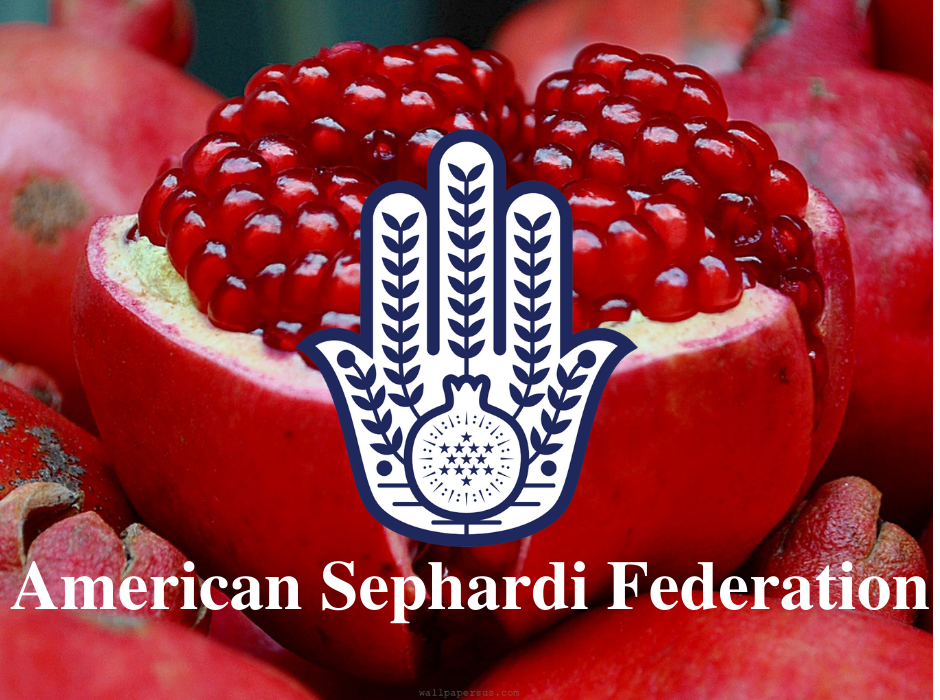
For more information about sponsorship opportunities: email or leave a message at 212.294.8350. To donate by mail, please send a check payable to “American Sephardi Federation,” 15 W 16th St., New York, NY, 10011
Email us at info@americansephardi.org if you are interested in discussing donating securities or planned giving options with a financial professional from AllianceBernstein.
~~~~~~~
The majority of legal authorities have ruled, for a variety of reasons, that it is not permissible to use a grafted etrog. When the issue came before R’Ouziel, however, he ruled in favor of “All who buy etrogim grown in Israel, even if it is known that they were grafted,” declaring they “may rely on the opinion of those that permit them.”
What motivated R’Ouziel to deviate from the scholarly consensus by endorsing grafted etrogim as permissible? R’Ouziel reasoned:
Even though halakhically there is no law to give precedence to the fruits of Israel, nevertheless, because of the love of the land and the mitzvah of settling the land of Israel, it is a mitzvah to seek out etrogim grown in Israel.
This is in order to aid those who exert effort to develop the land among the Jewish people. Anyone who prefers etrogim grown in the Diaspora sins against his people and his land, since he weakens the position of his brethren who dwell in the land of Israel and who wish to support themselves by their labor.
R’Uziel concedes that there aren’t legal grounds for preferring fruits grown in the land of Israel. Therefore, on strictly legal grounds, it would seem to be preferable to use a pure etrog from outside the land of Israel in place of a hybrid etrog grown in the land of Israel.
However, R’Uziel further reasoned that other values supersede exclusively legal concerns, namely, “love of the land and the mitzvah of settling the land of Israel.” For R’Uziel, the meta-halakhic principle of strengthening Jewish settlement in the land of Israel guides how the law should be adjudicated.
But R’Uziel’s love of the Land wasn’t an abstract love. He considered it to be a mitzvah to seek out etrogim grown in Israel for a very practical reason:
This is in order to aid those who exert effort to develop the land among the Jewish people. Anyone who prefers etrogim grown in the Diaspora sins against his people and his land, since he weakens the position of his brethren who dwell in the land of Israel and who wish to support themselves by their labor.
As Rabbi Dr. Marc D. Angel explains in his book on R’Uziel, Loving Truth and Peace, “Rabbi Uziel… believed that it was a moral obligation of world Jewry to support the Israeli economy. Although halakhic arguments could be marshalled for and against grafting etrogim, Rabbi Uziel introduced the moral and practical issues relating to strengthening Jewish labor in the land of Israel; these conditions led him to permit ̶ and even to encourage ̶ the use of Israeli etrogim, even if grafted.” (Loving Truth and Peace, p. 103; translations are taken from the same source).
While today’s economic reality is of course different than in R’Uziel’s time—the Israeli economy is robust and growing—his ruling exemplifies the importance Sephardi leaders have attached throughout history to settling the land of Israel. What’s more, it demonstrates how a humane concern for people can shape our understanding of the Law. This is of course the Sephardi way, a way that is deeply rooted in classical Jewish sources; as the sages said, “The Torah was created for Israel,” and not the other way around (Midrash Kohelet, 1:9).
The ASF wishes our readers a joyous Sukkot holiday, ennobled by the humane love for the people of Israel and the passionate love for the land of Israel that animated R’Uziel’s whole life and that informed his ruling regarding the status of grafted etrogim.
Haj Sameah!
The American Sephardi Federation

~~~~~~~
Banner image credit: Etrogim, Market of the Four Species, Bnei Brak, Israel
(Photo courtesy of Sven Manguard/Wikipedia), 2011
~~~~~~~
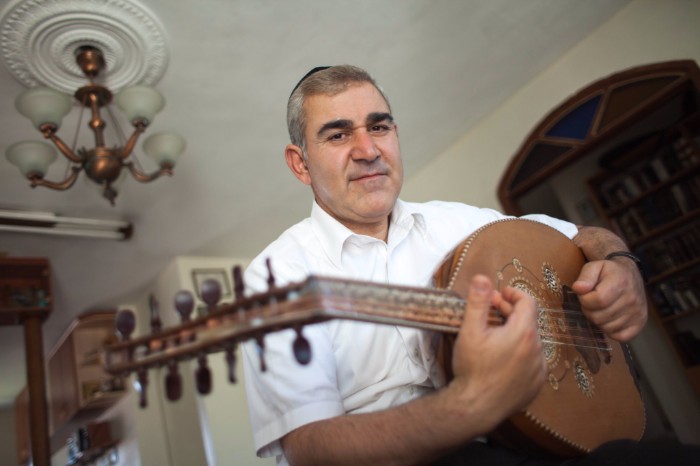
(Photo courtesy of Emil Salman)
In honor of Sukkot, the great Iraqi-born payytan, R’Moshe Habusha, sings Yah et Sukkat David Takim (“God, raise up David’s Sukkah”), according to the traditional Babylonian melody.
~~~~~~~
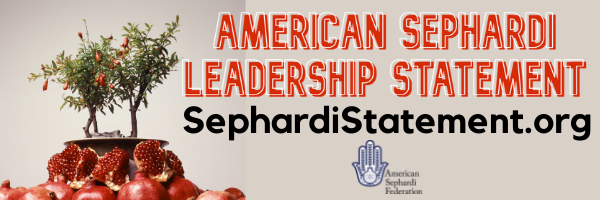
~~~~~~~
Upcoming Events or Opportunities
The Combat Antisemitism Movement, Jazz Leadership Project, and American Sephardi Federation present:
American Excellence The Omni-American Future Gala
Join us for a night of inspiration, music and excellence honoring Roy Niederhoffer and Emmet Cohen.
Experience an evening of the world-class jazz, music, fine dining., and blues with Coleman Hughes and Itamar Borochov performing with The Emmet Cohen Trio.
Tuesday, 12 November
Cocktail Reception6:00-7:00PM ET
Dinner & Program7:00-9:00PM ET
@Ginny’s Supper Club (310 Lenox Ave. NYC)
Sign-up Now!
Tickets: $45-$500
The Omni-American Future Project is a cultural initiative that draws from the vision of Albert Murray and the rich traditions of jazz to build a robust cultural and political center in America. It seeks to counter extremism and division by fostering unity, inclusion, and shared values.
